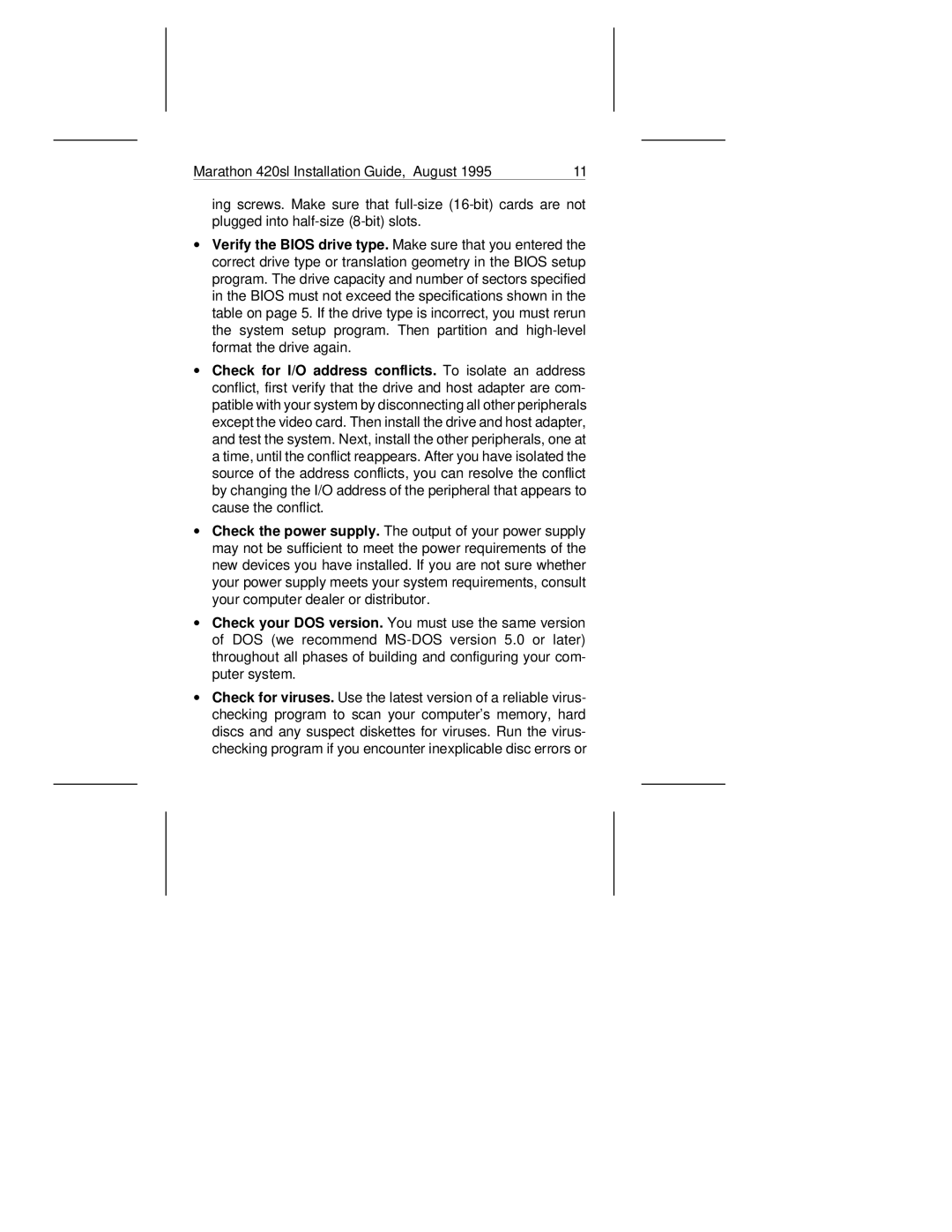
Marathon 420sl Installation Guide, August 1995 | 11 | |
|
|
|
ing screws. Make sure that
∙Verify the BIOS drive type. Make sure that you entered the correct drive type or translation geometry in the BIOS setup program. The drive capacity and number of sectors specified in the BIOS must not exceed the specifications shown in the table on page 5. If the drive type is incorrect, you must rerun the system setup program. Then partition and
∙Check for I/O address conflicts. To isolate an address conflict, first verify that the drive and host adapter are com- patible with your system by disconnecting all other peripherals except the video card. Then install the drive and host adapter, and test the system. Next, install the other peripherals, one at a time, until the conflict reappears. After you have isolated the source of the address conflicts, you can resolve the conflict by changing the I/O address of the peripheral that appears to cause the conflict.
∙Check the power supply. The output of your power supply may not be sufficient to meet the power requirements of the new devices you have installed. If you are not sure whether your power supply meets your system requirements, consult your computer dealer or distributor.
∙Check your DOS version. You must use the same version of DOS (we recommend
∙Check for viruses. Use the latest version of a reliable virus- checking program to scan your computer’s memory, hard discs and any suspect diskettes for viruses. Run the virus- checking program if you encounter inexplicable disc errors or
